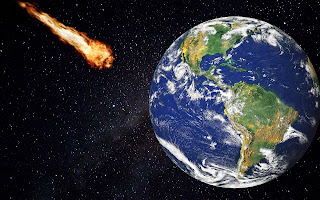This is me, age 66. The rock star Madonna is two years younger than me, and I am stunned to realize after her appearance at the Grammys on the weekend that I now prefer my face to hers, so altered has hers become from years of cosmetic surgery and treatments.
This face of mine has been creamed, scrubbed, exfoliated, masked and otherwise fussed over for a very long time. I am as disappointed as any person who comprehends the social capital of physical attractiveness to be experiencing the unwanted changes that aging brings.
But having watched one beautiful celebrity after another succumb to the disaster of costly and invasive "anti-aging" procedures, I concluded many years ago that I will never do anything beyond the superficial to try to appear younger.
It's not out of any noble belief in being my "natural self." As you can see from my photo, my hair is coloured, and I am pretty sure it will be until the day I die. I wear eye makeup and have since age 12, and don't even leave the house for the morning dog walk without it on. I got my eyebrows tattooed in 2009 and love them. You'll never catch me singing the praises of a natural look.
Nor is it out of a determination to grow old gracefully. If I could take a magic pill guaranteed to firm up my neck, jawline and eyelids with no side-effects, I would be seriously tempted, and admit to moments in front of the mirror in which I pull my face skin tighter and lament out loud about how much younger I look.
But here's the thing about invasive cosmetic procedures, as Madonna's 2023 face so tragically reminds us: It's a pact with the Devil. You're going to trade off your future old face for an "improved" face now, and you're going to do that repeatedly as the relentless aging process drags your skin lower to the ground no matter how many procedures you throw at it.
And then one day, you cross some line of having had way too many procedures, and there's no way back. Alas, you still don't look young, you just look like an aging woman who has had way too many cosmetic procedures.
I get that celebrities must feel the pressure to keep up their beauty, though I would have thought more of them would have noticed by now that the work really dries up once your face starts looking altered (Melanie Griffith, I'm talking to you.)
But why I am seeing so many non-celebrities - and so many young women - getting sucked in? Don't they have eyes to see all the wealthy celebrities with their ruined faces? If famous, rich people with access to top-of-the-line surgeons still end up looking like unrecognizably bizarre cat-people with painfully distorted lips, isn't that a pretty blatant warning to any of us to just stay away from this crap?
We fight very hard to look younger than our age, as evidenced by a global anti-aging market now valued at $62.6 billion US and a $67 billion cosmetic surgery market. There are many theories about why that is so, from evil marketing strategies and ruthless capitalists to the patriarchy.
I know from my own experience that an aging woman no longer draws the Male Gaze (a sad-happy loss for me), and that ageism in your work life is a real thing. The world does view you differently, and makes many strange assumptions once having registered you as "old." I clearly remember the grand insult I felt back in my 50s when some twerp salesman at the computer store leaned in close to ask if I knew what a flash drive was.
But to cut, inject and fill your face with weird chemicals and poisons in reaction to the social realities of aging? And all of it to end up with a face so obviously distorted that you're literally the poster child for aging really, really poorly? What theory explains that?
If you are a younger woman reading this, and I hope you are, I will tell you straight up that it's painful to experience your physical beauty fading. Not to brush off the years of catcalls, unwanted attention and outright sexual harassment as an easy time for women, but being attractive does have its privileges. As someone who for so many years counted on turning heads to get me feeling good about myself, I've found it hard to relinquish the dopamine rush of being checked out.
But all the cosmetic procedures in the world won't change any of that. In fact, they only make things worse, because soon enough you just look like a freaky-faced woman with too much disposable income who is desperate to not look as old as you are. Who wants to be that person?
So embrace yourself as those visible changes creep in and get over it. We don't expect an old dog to look like a puppy. Stay fit, don't smoke, keep the alcohol to a minimum and drink lots of water. Spend some time contemplating the old women all around you and you'll see that it's possible to look good AND old at the same time.
And let me assure you, there are a lot of perks to growing invisible. Count that one as a secret aging super-power.










